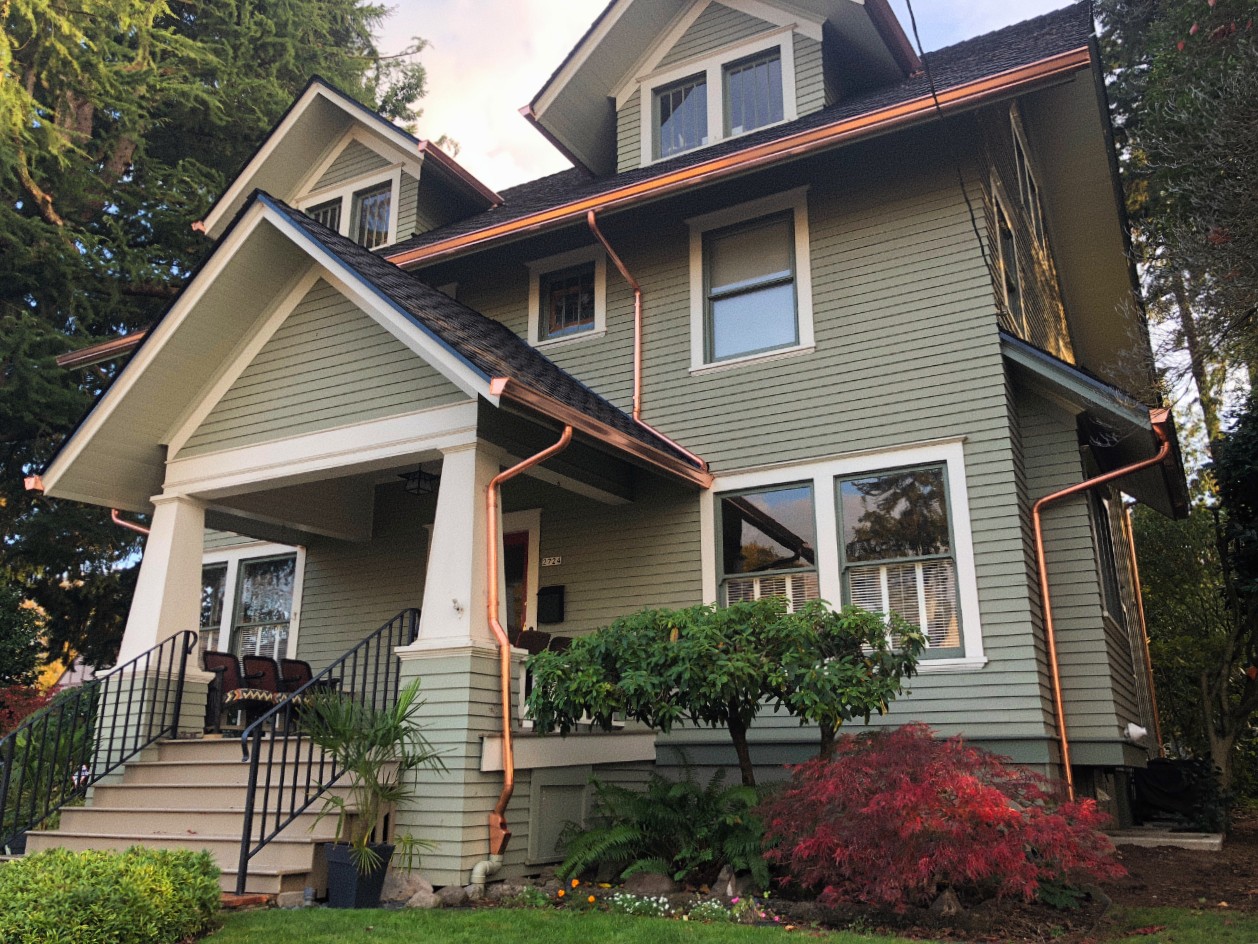Are your gutters making noise? How do you silence noisy gutters? We have come to know two main complaints homeowners have about gutters making noise.
1. Loud Dripping Noise.
Are you hearing loud tapping right after it rains? Where is it coming from and how do you stop it?! You are not alone. It is a dripping sound, which comes from a single droplet of water falling down to the bottom of your downspout, producing an awful tap. This can occur on the shortest of downspouts and can get louder as the downspout gets taller.
These are temporary fixes. First, you could try running a rope through your downspout, it will act as a wick slowing down the water and exiting the downspout quietly. But be aware, debris can get caught on it. Second, the simple solution of putting a sponge at the bottom of your downspout to absorb the loud droplets. Also, be aware, debris can get caught on it.
If these solutions do not give you peace of mind, we recommend taking the downspout apart to see if the droplets can be intercepted with better connectivity of the downspout. Sometimes moving the bottom of the downspout away from the house intercepts the drops as well.
2. Creeky Gutters.
This typically happens due to wind. The gutters are moving and the downspouts are vibrating. This is usually a sign that the gutters and downspouts are not fastened securely to the fascia boards or the siding. In order to give your gutters and downspouts more security, you will need to fasten with screws instead of nails in places where the gutter appears to be leaning away from your home. Re-positioning your downspout straps to create a snugger fit around the downspout will prevent any vibrating. Re-strapping or adding more straps to your downspout in order to secure the downspout to the siding will also alleviate the noise.
Unfortunately, dripping noise and creeky gutters most often than not are signs of gutters that have not been maintained. Even if a few creative solutions do work to temporarily alleviate gutter issues we recommend calling us to fix it permanently and inspect for inconspicuous problems. This could potentially save you from large repair costs. Water has a slippery way of making its way anywhere.




